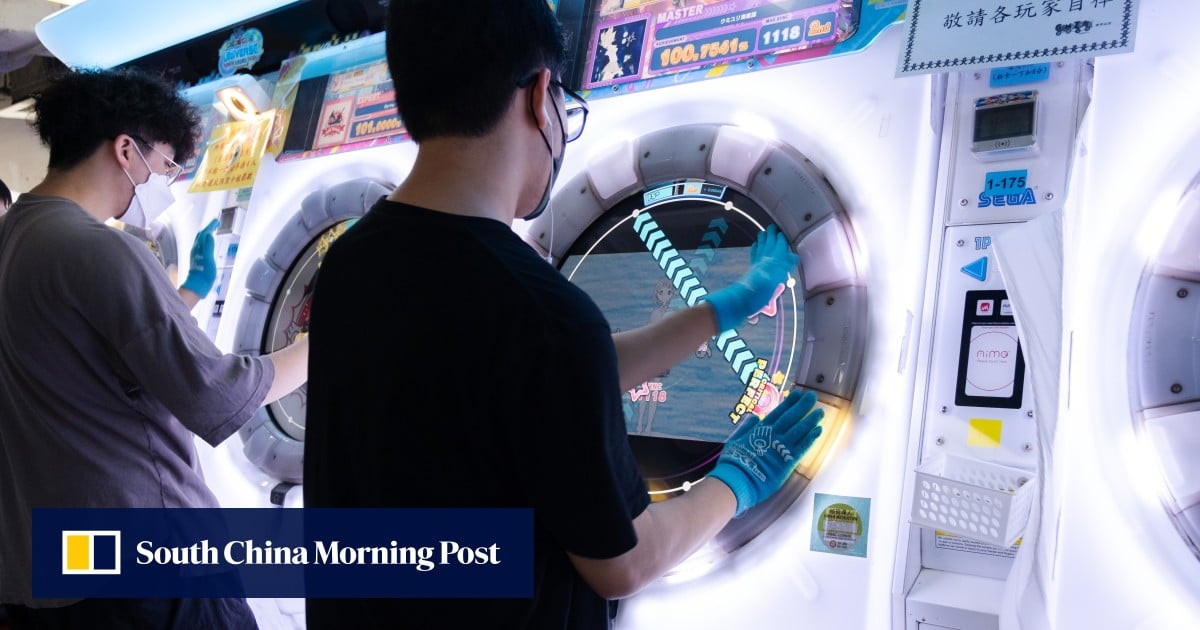
She moved from California to Hong Kong so she can play an arcade video game
A student at the University of California, Lu Ziyang chose Hong Kong for an exchange programme so she could play Maimai. She’s not alone – people in Hong Kong arcades queue to play it.
In a dimly lit basement arcade in Hong Kong’s Central financial district, Lu Ziyang, 21, is tapping relentlessly at a glowing video-game machine armed with little more than headphones and a pair of gloves.
Born in Tianjin, northeast China, she was studying sociology at the University of California, Davis in the United States when she decided to do an exchange programme at the University of Hong Kong. The main reason she came to Hong Kong, she says, was so she could play a Japanese video game called Maimai.
“I just want to play this game so much,” she says.
First released in 2012 and developed by Japanese gaming giant Sega, Maimai is a series of rhythm games in the same vein as previous smash hits Guitar Hero and Dance Dance Revolution. Today, gamers around the region still can’t get enough of it.
As with those games, players have to react to visual prompts that appear based on the selection of music. For Maimai, the prompts scatter and sparkle rhythmically across a circular touch screen affixed to a glowing white box.
The game is often referred to affectionately as a washing machine by fans owing to its unusual shape.
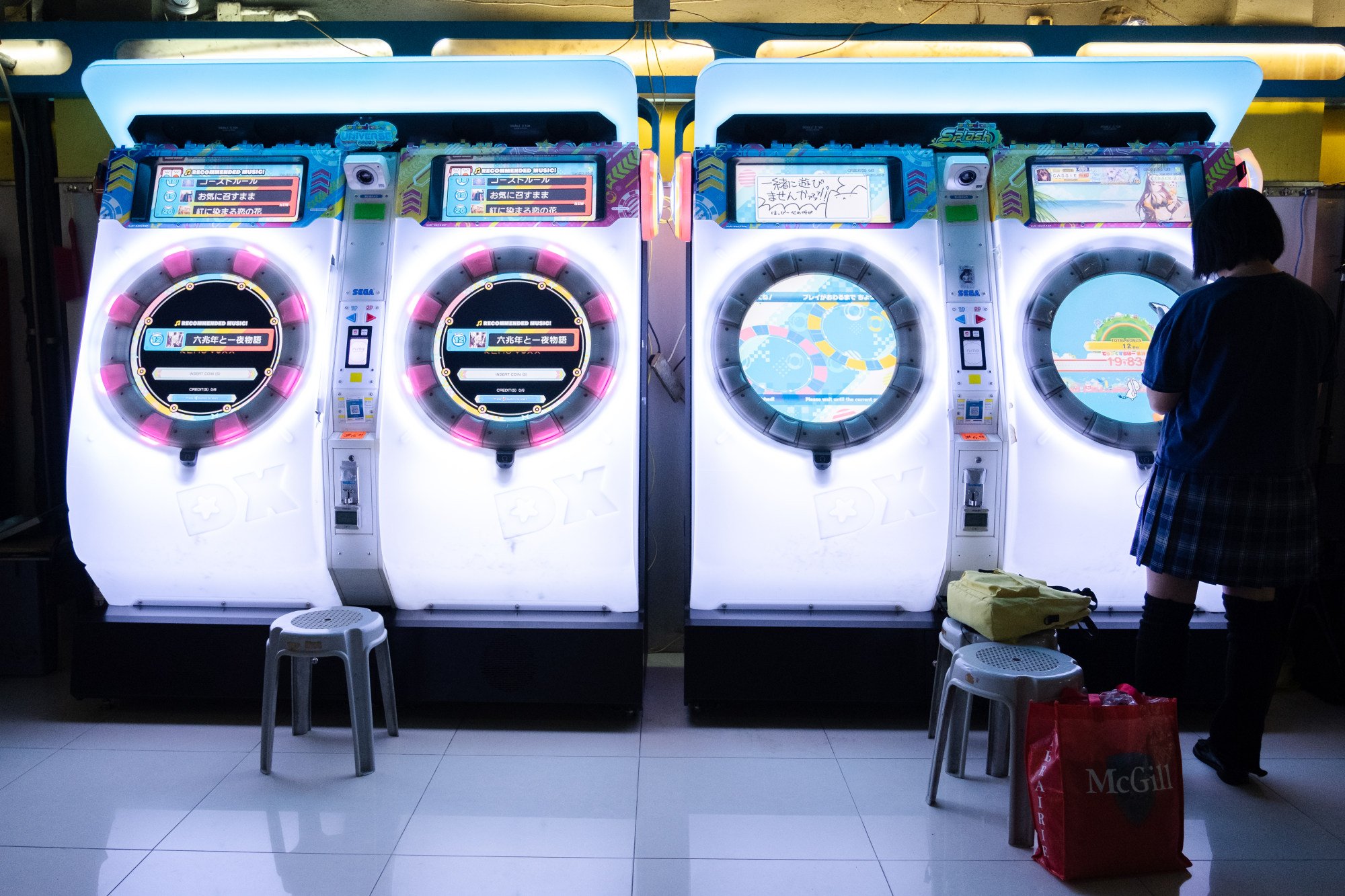
Two pairs of “Maimai DX Universe Plus” video game machines at an arcade in Central, Hong Kong. Photo: Connor Mycroft
Players have to either perform gestures such as circles or zigzags on the screen itself, or press eight buttons lining its edges, often at blistering speed – hence the necessity for gloves at higher difficulty levels.
Scoring is based on accuracy, and players need to earn a score of at least 80 per cent in order to clear a song.
There are hundreds of songs to choose from. Ranging from J-pop to anime soundtracks to Maimai originals, each song is given a difficulty rating of between 1 and 15. The song list is updated on a regular basis, something fans the Post spoke with say keeps bringing them back.
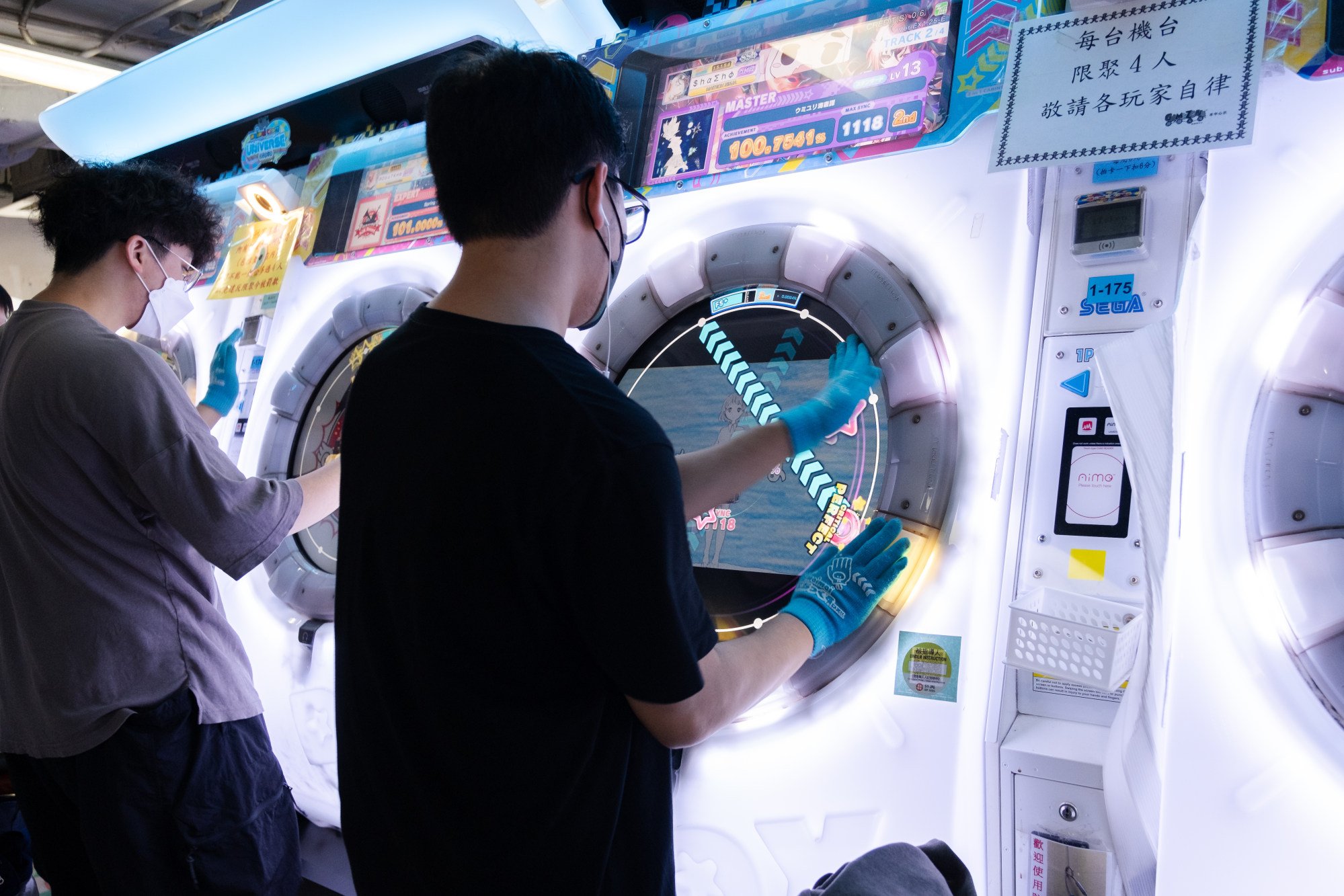
Gamers playing “Maimai DX Universe Plus” at an arcade in Mong Kok, Hong Kong. Photo: Connor Mycroft
Players are able to track their progress and performance across multiple arcades – and even countries – as long as they play on official machines hooked up to the Maimai network.
Gamers in the West can be forgiven for having never heard of Maimai. According to Sega’s official website, the only non-Asian country or region with official copies of the latest international edition of the game, called Maimai DX Universe Plus, is Australia.
But across Asia, the game is surging in popularity. On a recent visit the Post made to an arcade in Hong Kong’s Mong Kok district, seats laid out for overflow customers were full of players waiting to get their chance to play one of the 10 pairs of Maimai machines available.
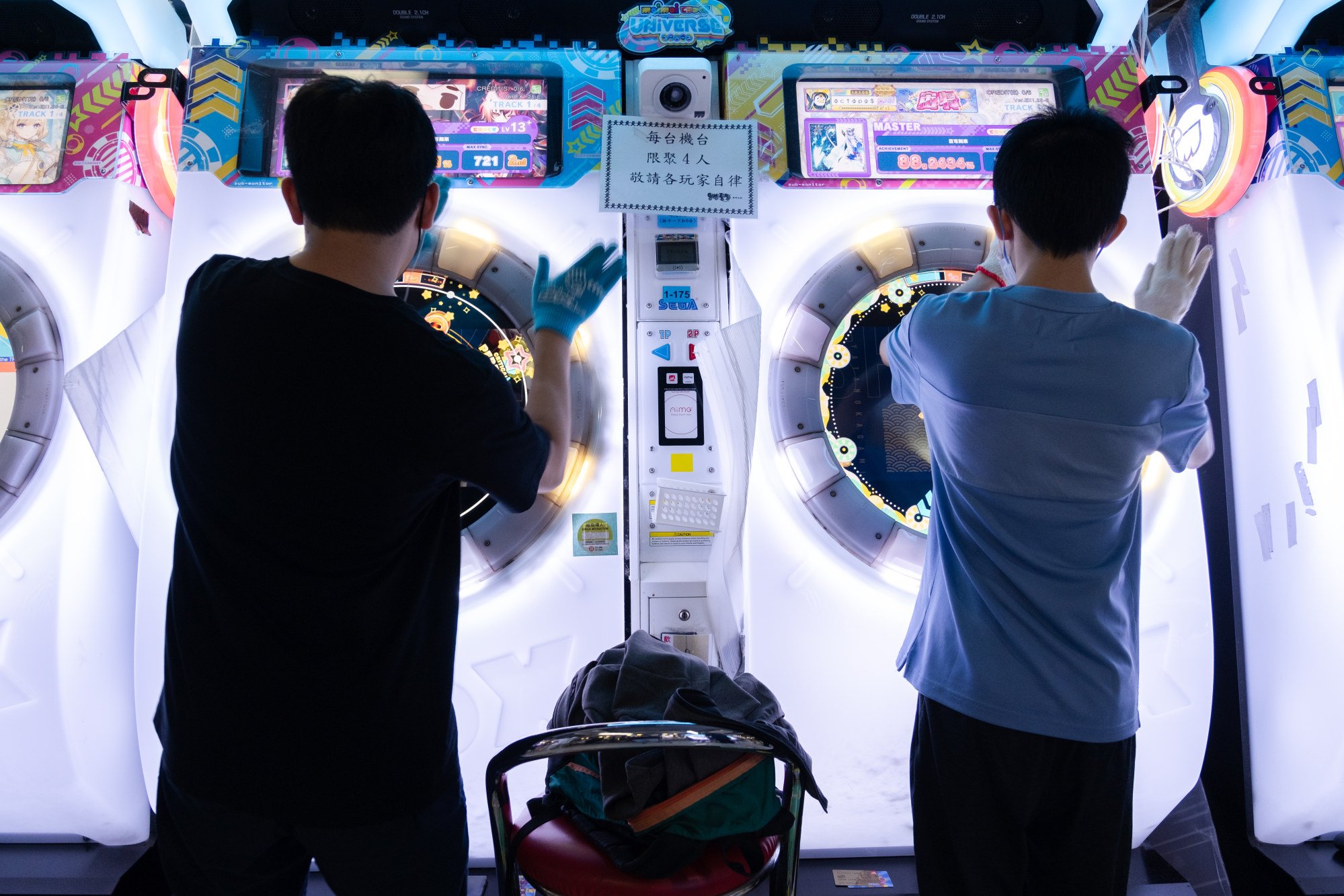
Leung Wang-hoi, right, plays “Maimai DX Universe Plus” alongside a friend at an arcade in Mong Kok. Photo: Connor Mycroft
Hong Kong native Leung Wang-hoi, 18, tells the Post he normally arrives early in the morning so he can play uninterrupted until queues form around 4pm.
To him, Maimai’s unique gameplay, buttons that are a “joy to touch” and its constantly evolving set list of songs make it stand out from the other rhythm games available.
Furthermore, it brings him and his friends together. Maimai cabinets can be connected together, allowing up to four friends to play and compete against each other side by side in real time.
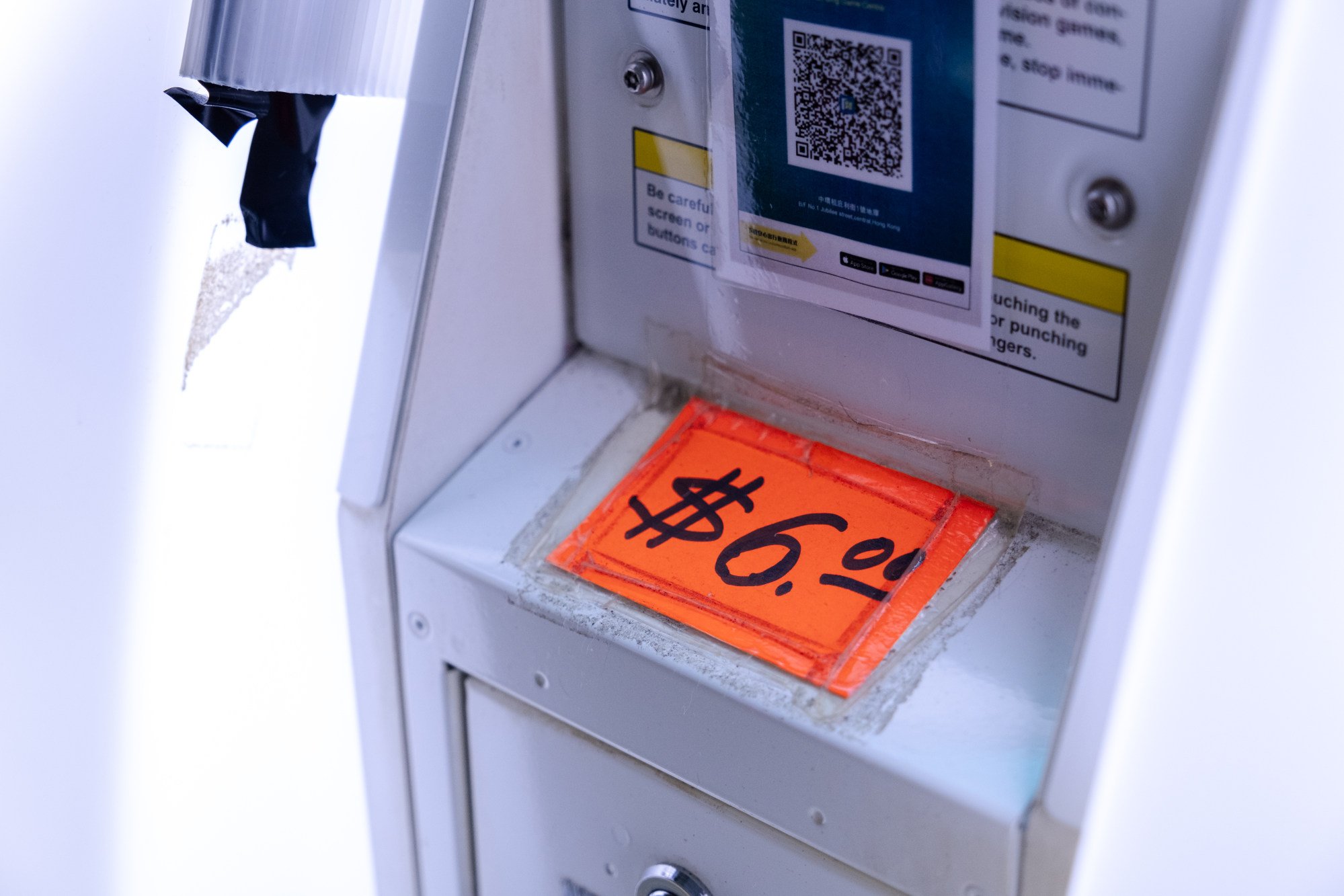
A close-up of the price affixed to a “Maimai DX Universe Plus” machine. One gamer says he has spent HK$10,000 playing the game in the past 18 months. Photo: Connor Mycroft
“When I improve my performance in the game, I can share the joy together with my friends,” he says.
But at HK$6 per play – for which players get three songs to four songs depending on the mode they choose – the cost adds up. Leung said over the past year and half he has spent around HK$10,000 (US$1,290) on Maimai.
The three ingredients for success in Maimai are “a fighting spirit, time and money”, says Taiwanese Maimai champion Ho Yun-wen.
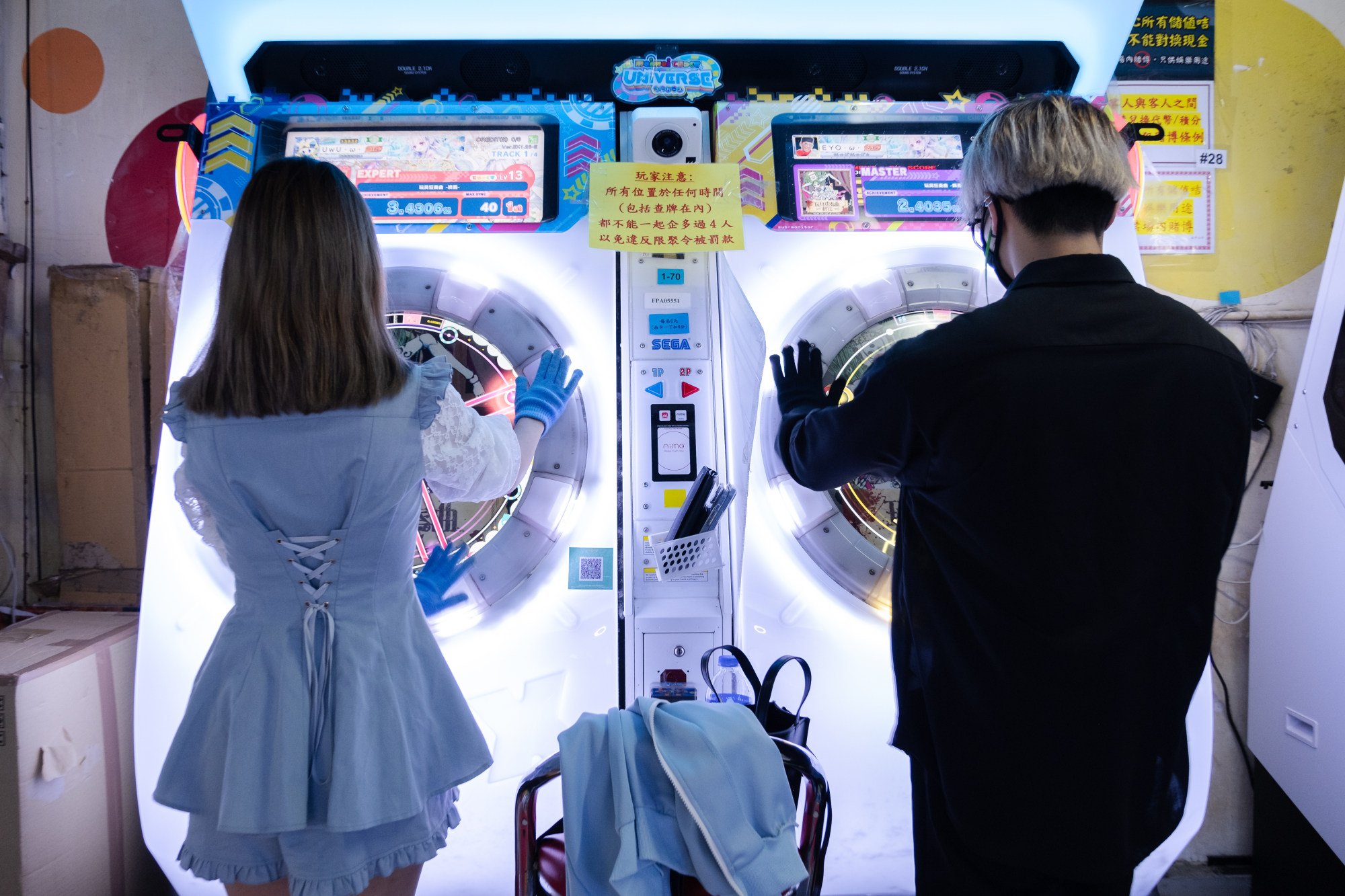
Two gamers play “Maimai DX Universe Plus” together at an arcade in Mong Kok. Photo: Connor Mycroft
Ho started playing Maimai in 2015 while he was still in high school. He quickly became one of Taiwan’s top players owing to marathon 10-hour training sessions, and won national competitions in 2016 and 2017.
Ho says his family initially wasn’t supportive of how much time and money he was spending in arcades. They’d rather he put those efforts into his studies instead. It wasn’t until Ho brought them along to the finals in 2016 that their opinion changed.
“They don’t judge me anymore after they saw me winning the championship,” he says.
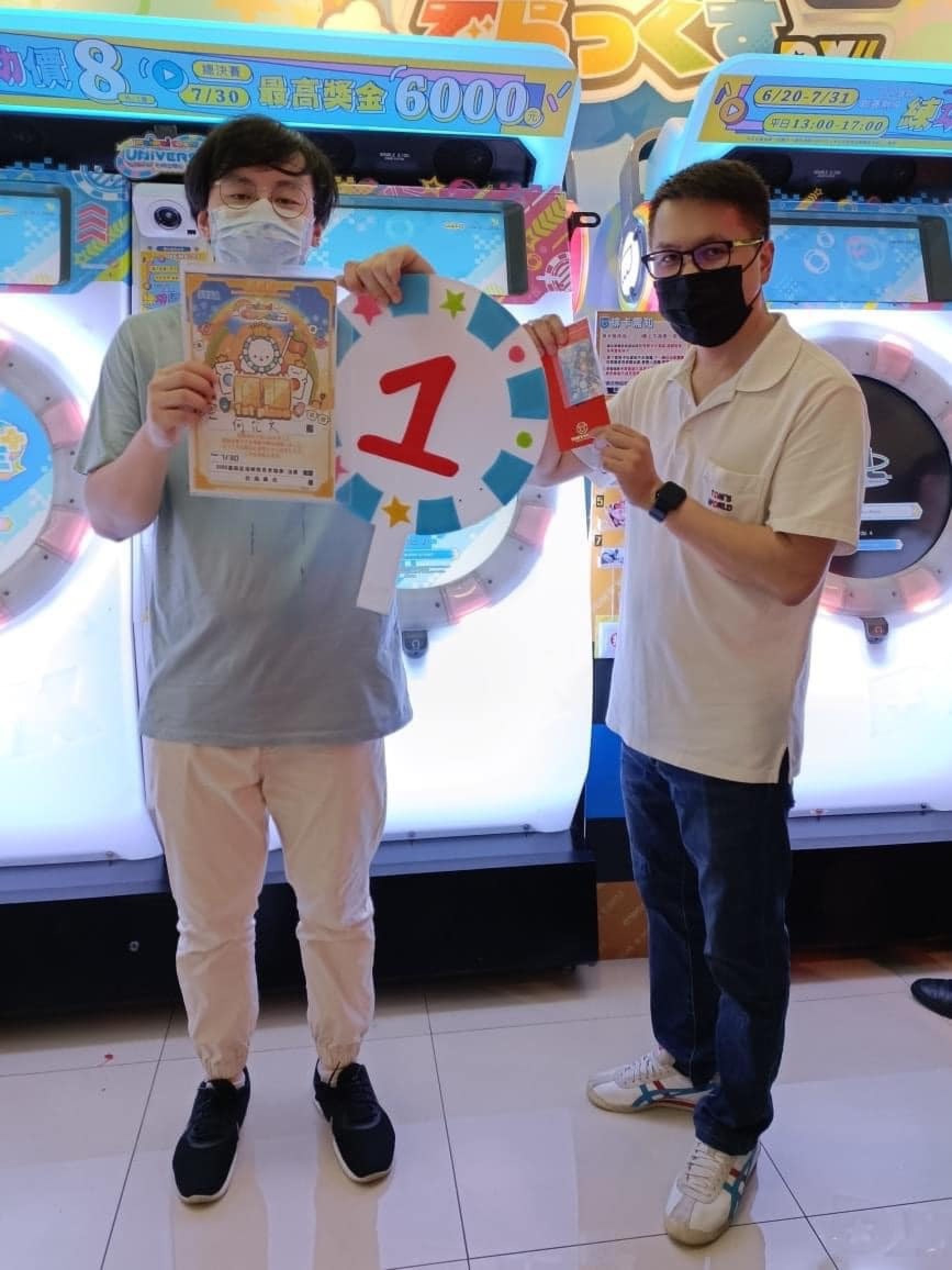
Ho Yun-wen took home first prize in a “Maimai” 2022 summer league hosted by Taiwanese arcade chain Tom’s World. Photo: courtesy of Ho Yun-wen
Ho, who goes by the handle KN. K_MR online, says the Maimai community drives his love of the game. While studying at Tamkang University, he became one of the lead organisers for a club focused on rhythm games such as Maimai.
“In a way, we found a sense of belonging through this game,” he says.
Now 22 and a fresh graduate, he is gearing up for another Maimai competition, Sega’s fourth “King of Performai” rhythm games competition in Tokyo in February 2023.
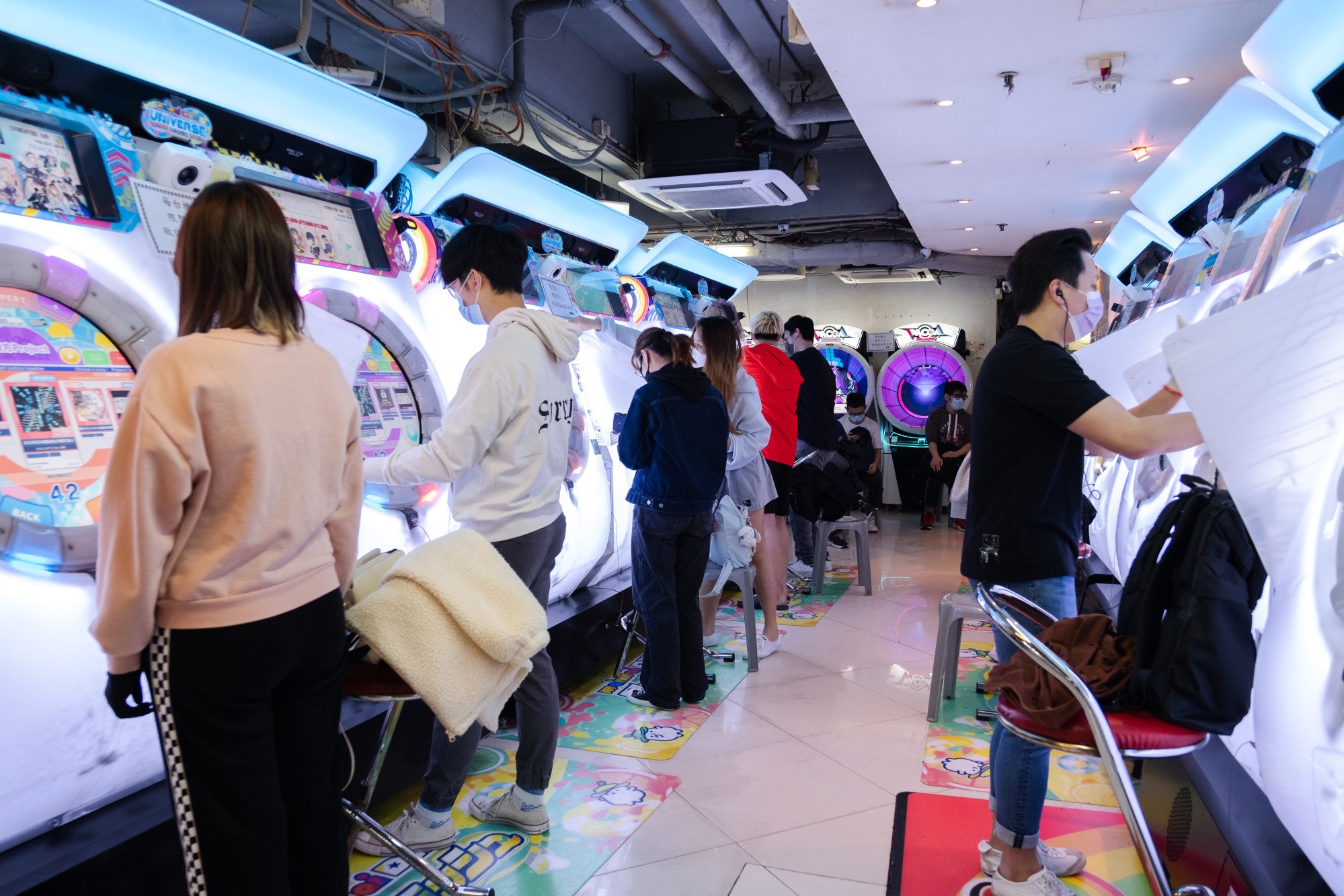
People playing “Maimai DX Universe Plus” at an arcade in Mong Kok, Hong Kong. Customers queue to play the game. Photo: Connor Mycroft
Only the top two players of the international edition could qualify for the Maimai competition. Ho secured second place by just 0.01 per cent, and is confident of success.
“All I need is the fight in me,” he says.
Thoughts?




